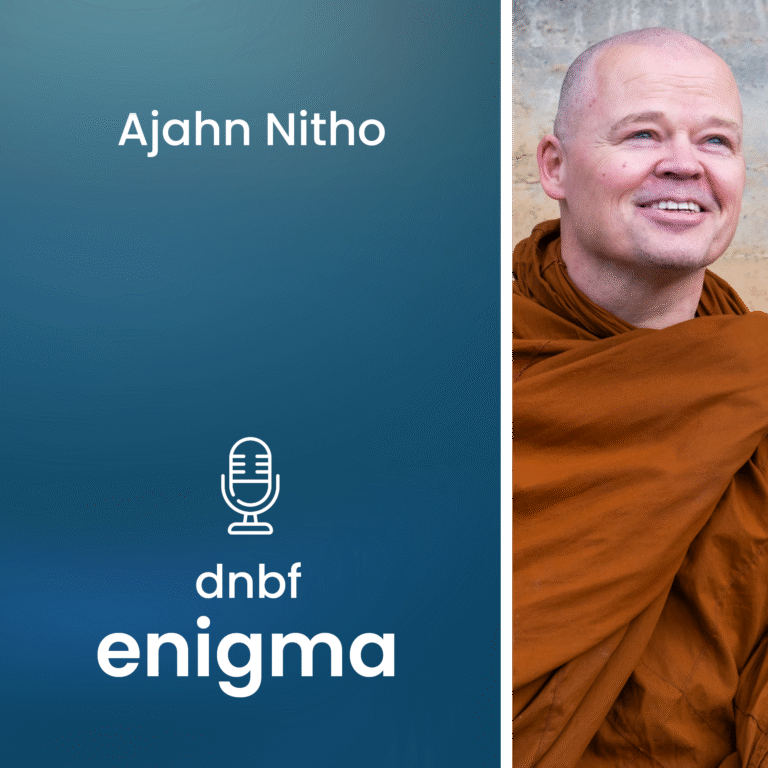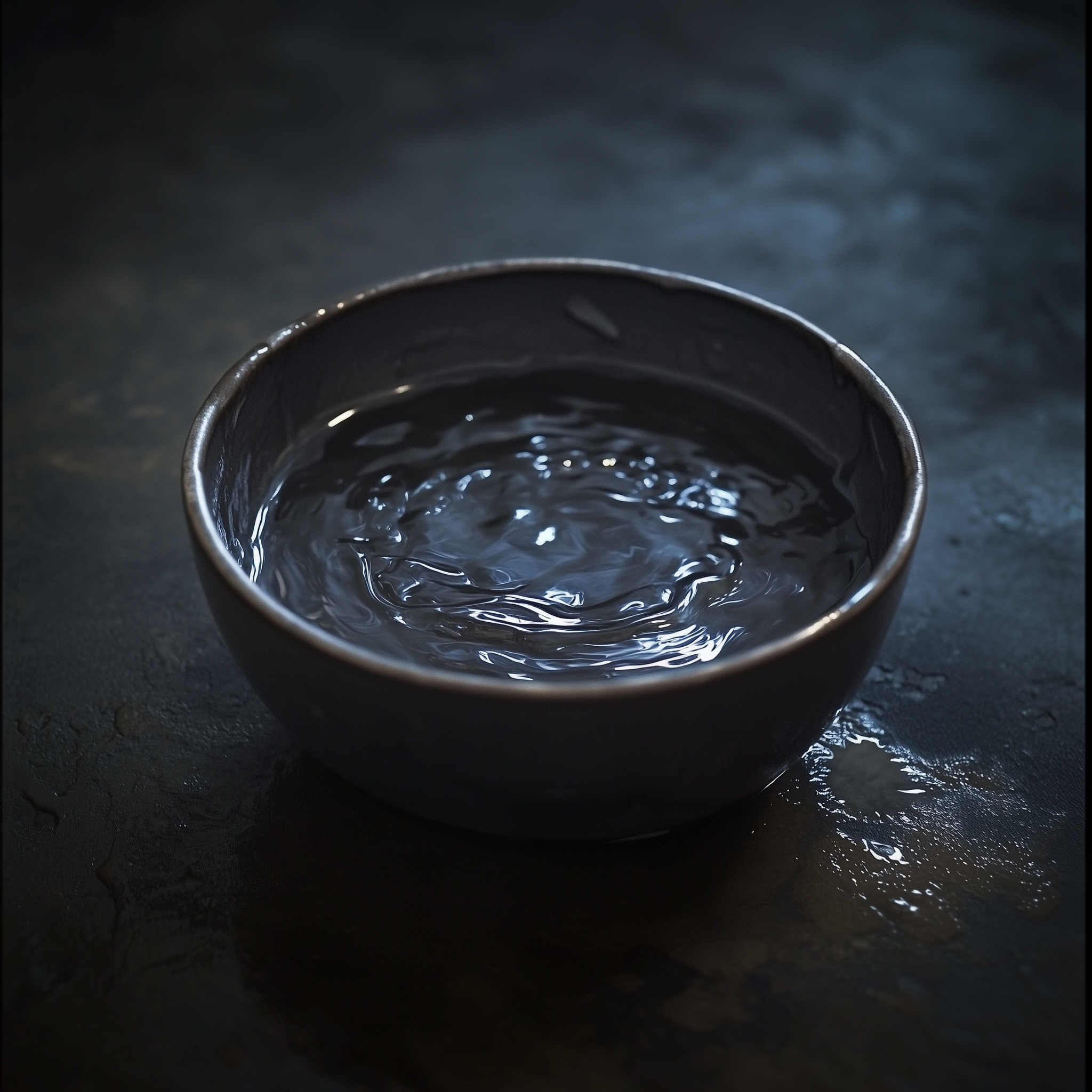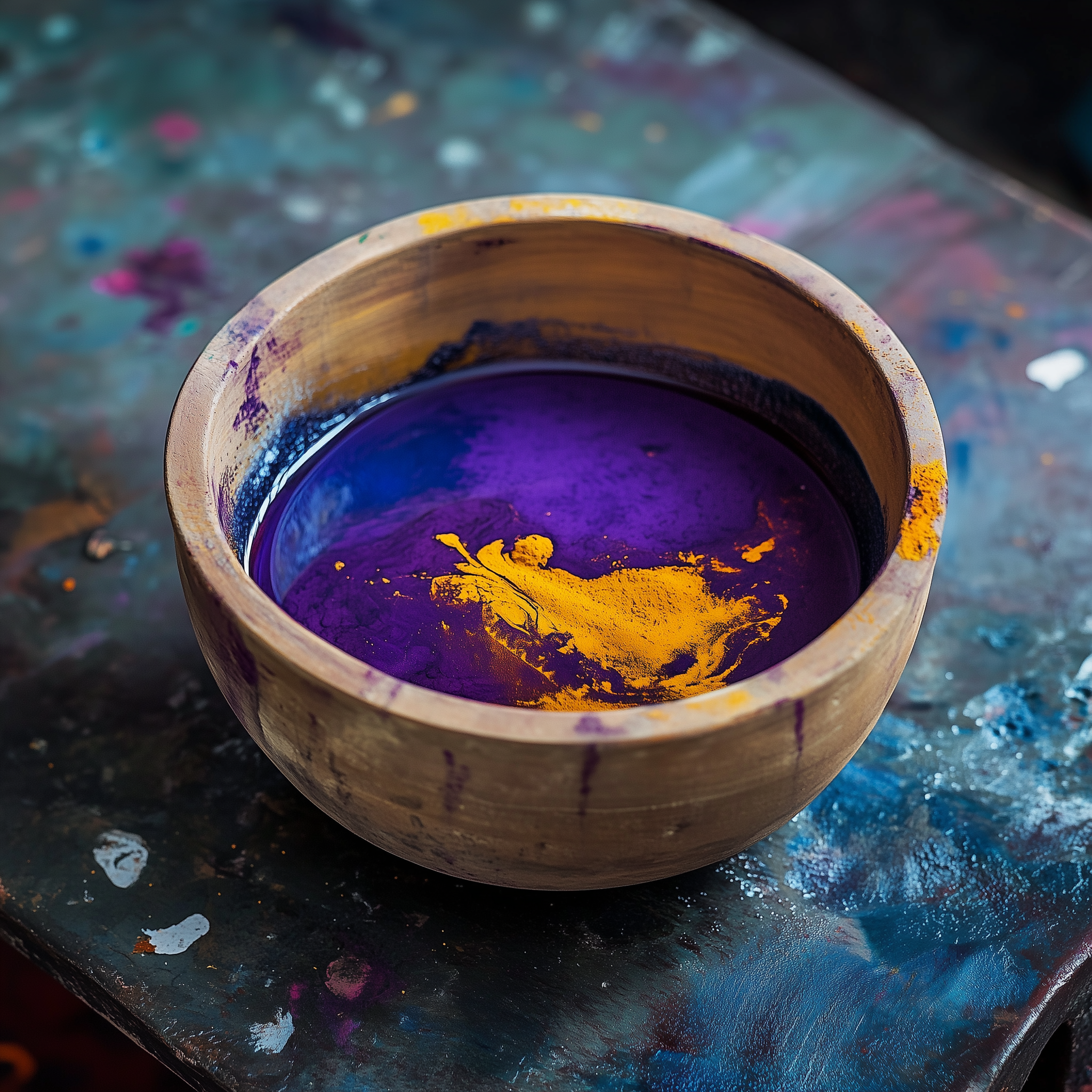It is important to be able to identify hindrances during meditation, and in this way you can remove the power the hindrances have over the mind, and the result is a clearer mind, which can more easily develop wisdom. It is these obstacles that stop people from reaching awakening!
So when you have problems in meditation, check for hindrances, find out what they are and apply a remedy.
Buddha mentioned five hindrances: 1) sensual desire (kāma-cchanda), 2) ill will (vyāpāda), 3) sloth and torpor (thīna-middha), 4) restlessness and remorse (uddhacca-kukkucca), and 5) doubt (vicikicchā).
For these hindrances, the text Saṅgārava (SN 46.55) presents five parables using a bowl of water. In pure still water, one can see through the water all the way down to the bottom – one can see deeply. One can also see a reflection of oneself on the surface – one can see oneself undistorted.
In the text Assapura (MN 39) there is another set of parables, where difficult human situations are used. When the difficult situation disappears, everything gets better!
Use this website to listen to the talk, or find it in our podcasts:
We can waist lots of time, doing the same things over and over again in meditation, if we don’t sometimes pull back and look at what we are doing. Sometimes analysis is important, and for example using the framework of the five hindrances that stops our development. In this talk the focus is the hindrances of sensory desire, ill will, sloth and torpor, restlessness and remorse and doubt. So next time you feel stuck in meditation – have a look at these five hindrances.
This teaching was given at Venabu 2025, and the relevant illustrations are found here:
https://dnbf.org/en/2025/05/venabu-may-2025/
– – –
Please, feel free to recommend this podcast to your friends!
Feedback
If you have feedback or questions about this podcast, send an email to: post@dnbf.org
Donation
The non-profit society DNBF together with the instructor has produced and distributed this podcast for free and without advertising, but we are dependent on financial support through one-time donations or monthly patron donations for our operation and development:
DNBF Donation – https://dnbf.org/en/donation/
DNBF Patron – https://dnbf.org/en/patron/
Newsletter
Subscribe to our newsletter to receive information about our activities:
https://dnbf.org/en/newsletter/
Membership
You are welcome as a member, and we have a lot to offer in terms of activities:
https://dnbf.org/en/membership/
Problems
If you have a problem with this podcast, send an email to: post@dnbf.org


Sensual desire
Sensual desire (kāma-cchanda) is a desire or longing in meditation to engage with the world through the five senses. Kāma is everything related to the senses – sight, hearing, smell, taste and touch. Chanda means to enjoy, like or involve. Examples are sounds around you, pain in a body part, desire for food and drink, or sexuality.
Sensual desire pulls the mind away from the object of meditation, thus preventing deep meditation and insights. When sensory craving is overcome, it leads to deepening of the meditation, where one experiences joy, clarity and freedom.
Suppose there is a bowl of water mixed with lac, turmeric, blue dye, or crimson dye
This is a parable of how sensory desire colors the mind and blurs perception – you can’t see through the water, or a reflection of yourself.
Suppose a man were to take a loan and undertake business and his business were to succeed so that he could repay all the money from the old loan and there would be left enough extra to maintain a family. When he thought about this, he would be happy and full of happiness.
This is a parable of how sensual desire creates a mental debt or weight that must be repaid in the form of dissatisfaction when sensual pleasures cease and an unsatisfied longing for more arises. The repayment is also a fear of missing out on the sensory pleasures that exist.
Just as debts must be repaid to gain financial freedom, sensory desires must be overcome to achieve spiritual freedom – bringing clarity, calm and immersion.
Antidote:
- Sit or lie with comfort so that the body is not in pain, and desire does not arise towards the body.
- Kindly focus on an object of meditation, such as the breath, a mantra or a visualization, instead of letting the mind wander towards objects of desire.
- Restraint of the senses – change the surrounding environment to limit sensory impressions that create desire.
- Stay in the present! Most of our past is about the senses – memories of sight, hearing, taste, smell, touch. The future is usually also about sensory satisfaction.
- “It is not the noise that disturbs you, it is you who disturb the noise!” – Ajahn Chah
Ill will
The second obstacle is ill will or anger (vyāpāda) towards 1) another person, 2) yourself or 3) the object of meditation. It is a mental state that wants to harm others or oneself. Ill will distorts perception and prevents compassion and empathy.


Suppose a bowl of water heated over fire, bubbling and boiling.
Just as boiling turbulent water distorts reflections and hinders the ability to see through, negativity will distort the mind’s ability to see reality and prevent us from seeing reflections clearly.
Suppose a man was afflicted and seriously ill, and he had no appetite and his body had no strength, but later he would overcome the affliction and his appetite would return and his body would regain strength. When he thought of this, he would be happy and full of joy.
This is a parable of how illness weakens the body, in the same way that ill will weakens the mind and prevents the peace and clarity necessary for deep meditation. Negativity disturbs the mind, just as illness disturbs the functioning of the body.
Antidote:
- Cultivating kindness (metta meditation) towards yourself and others helps to replace ill will with compassion and understanding.
- Recognizing that everyone, including oneself, is subject to discontent and problems can promote compassion and reduce negativity. This involves understanding that negative emotions and actions often stem from discontent or ignorance.
- Practicing forgiveness towards yourself and others, along with cultivating patience, can help alleviate negativity.
- Do you feel guilty and expect punishment? Maybe you think you don’t deserve joy, happiness and freedom… but you do!
- Create goodwill towards the meditation object! Be a friend to your over-active mind! No one wants to be around a negative critic – not even your meditation object!
Sloth and torpor
The third obstacle is sloth and torpor (thīna-middha). It is a state of lack of energy or effort, where one feels lethargic or drowsy, perhaps due to a lack of motivation or interest. This lethargy can also be physical.


Suppose there is a bowl of water covered over with water plants and algae.
A mind with sloth and torpor can be likened to stagnant marsh-water covered by plants and algae. Such a mind is prevented from seeing deeply, prevented from seeing reflections of itself clearly, and energy is lacking for mindfulness and meditation.
Suppose a man was put in prison, but later he would be released from prison, safe and secure, with no loss of his property. When he thought of this, he would be happy and full of joy.
This similarity illustrates how sloth and torpor limit one’s mental and spiritual freedom, much like a physical prison limits the body. One is thus unable to engage in spiritual practices or enjoy mental clarity and energy.
Antidote:
- If your mind is overworked, just mentally tired, then rest! Don’t fight it, the result is often restlessness instead.
- Give your mental energy to the passive element – mindfulness and awareness. Don’t give energy to the active element – thoughts, fantasies, emotions, memories.
- Add light – either daylight or visualize light in your mind.
- Do physical activity – use your body for something, such as walking meditation.
Restlessness and remorse
The fourth hindrance is a state of mental agitation where the mind is constantly seeking new stimuli or distractions. This can also involve dwelling on past bad actions that manifest as regret or remorse.. Restlessness occurs due to a lack of satisfaction, we do not find joy or energy where we are.


Suppose there is a bowl of water stirred by the wind, rippling, swirling, churned into wavelets.
This similarity to agitated swirling water illustrates how restlessness and remorse disturb the mind, making it difficult to find peace, stillness and clarity during meditation. The wind is an external influence through the senses that stirs up the mind. The feeling of regret makes it difficult to focus on an object in meditation.
Suppose a man was a slave, not independent, but dependent on others, unable to go wherever he wanted, but later he would be released from slavery, independent of others, a liberated man able to go wherever he wanted. When he thought about this, he would be happy and full of joy.
Imagine a slave who is always ordered by his master to do tasks that prevent him from enjoying leisure and freedom. And if he refuses, he is punished physically. The obstacles of restlessness and regret enslave the mind and control one’s mental state, just as a slave is controlled by a master, stopping the experiences of freedom, the tranquility of meditation and spiritual development.
Antidote:
- Everyone makes mistakes – forgive yourself, or be forgiven! One learns and becomes wise also through making mistakes. Let go of the past!
- Do meditation with the body as an object – the body is easy to focus on and restlessness is reduced.
- Create deeper satisfaction by seeing the good, the great and the beautiful.
- Go in, not on!
Doubt
The fifth hindrance is doubt or uncertainty, which manifests as a lack of confidence in the path to awakening, the Buddha’s teaching or one’s own abilities. Doubt hinders progress by causing indecision and confusion, making it difficult to trust one’s understanding and commit to spiritual practice.


Suppose there is a bowl of water that is turbid, unsettled, muddy, placed in the dark.
Turbid water symbolizes how doubt confuses and hides one’s understanding. Upset water reflects the restless and uncertain nature of a doubting mind. Muddy water represents the impurities or unclear thoughts that doubt introduces into one’s mental state. Placed in the darkness means the lack of clarity or insight, making it difficult to discern what is true or useful.
Suppose a man with wealth and property were to travel through a desert, and later he arrived safely and securely, without losing his property. When he thought of this, he would be happy and full of joy.
This similarity to an uncertain journey through the desert illustrates how doubt can lead to confusion and uncertainty, making it difficult to navigate effectively through life or spiritual practice. It stops the process of gathering information and understanding, leading to confusion and indecision.
The desert represents a vast, uncharted territory where one can easily get lost. In the same way, doubt can make one feel lost and unable to choose direction in their spiritual life.
Traveling through a desert is challenging, and without a map, progress is slow and uncertain. Doubt similarly hinders progress in meditation and spiritual growth by causing one to question everything, leading to a lack of confidence and clarity.
Antidote:
- Focusing on your own positive and beautiful experiences in the past will strengthen your confidence.
- Read and listen to inspiring books and teaching – the only ones who fail are those who give up!
- Be aware when doubt arises, even doubt is impermanent and uncertain.
Feel free to share this page with a friend:















